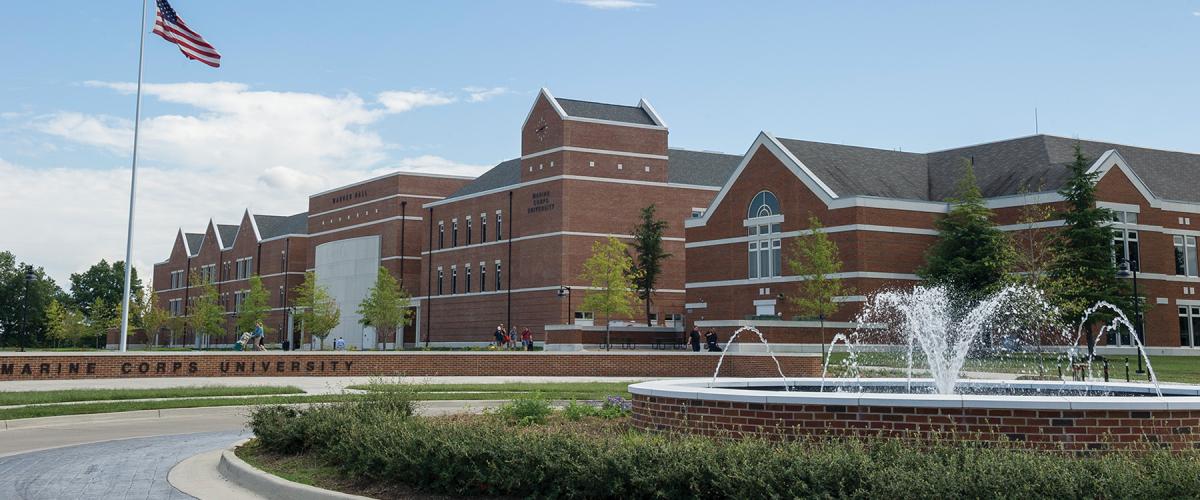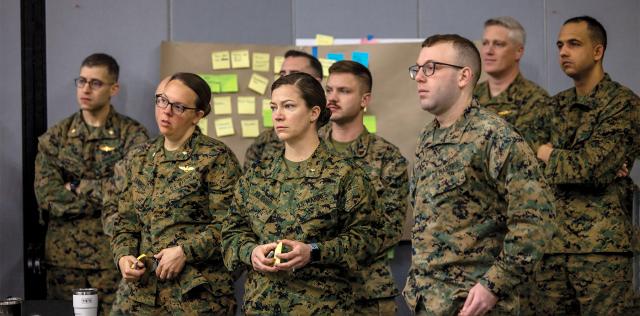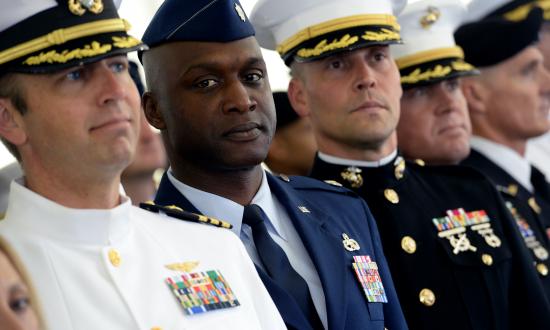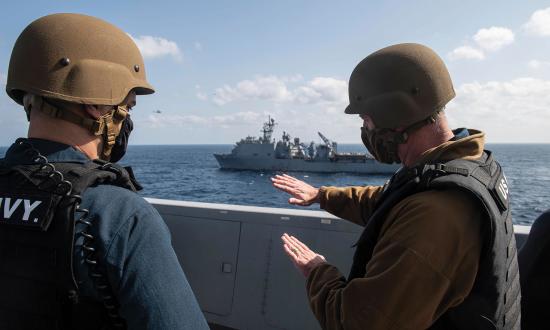In recent years, the officer professional military education (PME) enterprise has been accused of not adequately preparing U.S. military officers for the challenges of the modern operating environment. The most common refrain, and one directly asserted in the 2018 National Defense Strategy, is that PME stagnated during the global war on terror years, during which operational requirements focused on low-intensity counterinsurgency and stability operations. Some argue that this shift in focus came at the expense of core warfighting competencies, with PME institutions devaluing instruction related to operational warfare, military history, and combined arms. With the reemergence of great power competition and the increased possibility of great power war, the debate has shifted from a niche topic to a core national security issue.
Over a nine-month period, a George Washington University–based research team worked in collaboration with a variety of service PME stakeholders to assess whether U.S. Navy and Marine Corps intermediate-level school (ILS) PME programs are preparing officers for their follow-on assignments and for the requirements of multidomain, joint, high-end warfighting. The research incorporated both qualitative and quantitative methods to identify trends, determine causality, and develop realistic and actionable recommendations for PME program improvements. What follows is the result of more than 20 interviews with a range of stakeholders, including leaders in the fleet and current and former ILS PME faculty and staff, and the analysis derived from the survey feedback of 96 Navy and Marine Corps officers who have completed ILS PME.
Command and Staff Graduate Student Survey Feedback
The analysis of survey feedback found that while most officers felt that their PME experience prepared them for their next assignment, a slight majority felt it was not adequate to prepare them for high-end warfighting. One Marine Corps respondent stated that “there were times the curriculum was beneficial and forced folks to think through problems, however, it did not breed a warfighting mentality.” Another respondent stated that “warfighting functions focused primarily on maneuver and fires with minimal integration of information, intelligence, and non-lethal [capabilities].”
The surveys also provided other insights. For example, staff officers found it more beneficial than commanders; resident students demonstrated more polarizing perspectives while nonresident students were generally satisfied; and students who took electives directly related to their projected follow-on assignments found their overall PME experience to be more beneficial than those who did not.
Fleet Officer Senior Leader Interview Responses
While the data drawn from the 96 PME graduates was compelling, the research team spoke with three active-duty Navy captains and three Marine Corps colonels to get their perspective on the performance and quality of PME-complete O-4s. When asked if they believed Command and Staff College (CSC) prepared the O-4s they now lead for their assignments, all six respondents said it did, albeit with varying levels of enthusiasm. The consensus among the O-6s was that, while not perfect, PME provided an important baseline for officers to understand their roles and responsibilities in O-4 billets.
When asked if they had different expectations of officers who were “PME-complete” and those who were not, or those who completed PME through resident or nonresident programs, all answered that the expectations remained the same. Nonetheless, when asked if they thought CSC was preparing their officers for the requirements of high-end warfighting, all six said it was not. One O-6 invoked the years between World Wars I and II, responding, “U.S. admirals were prepared for World War II’s battle in the Pacific because they had all studied War Plan Orange while attending the [Naval War College] earlier in their career.”
Faculty Interview Responses
Overall, current and former Naval War College faculty members interviewed said the Navy is effectively preparing officers for future competition; however, external influences, an insulated approach to warfighting, and a talent management culture that undervalues PME challenges its ability to properly prepare officers for the future fight. Similarly, interviews with current and former faculty members at Marine Corps University reported that the Marine Corps is effectively preparing its students and meeting its program outcomes; however, its limited time, resources, and subject matter expertise challenge the development of expert, all-domain, joint warfighters. Ultimately, the interviewees emphasized that putting the responsibility on PME as the determining factor in whether U.S. officers are fully prepared for all the challenges and requirements of a near-peer conflict is unrealistic and misunderstands the role of ILS PME.
Recommendations
The research team recommends the following to ensure Navy and Marine Corps officers are properly prepared for their follow-on assignments and for the requirements of multidomain, joint, high-end warfighting:
• The Navy should target unrestricted line officers for ILS PME participation.
• The Marine Corps should align its PME programs’ exercise schedules.
• The Marine Corps should increase its PME programs’ faculty subject matter expertise.
• The Navy and Marine Corps should conduct classified wargames at resident PME.
• The Navy and Marine Corps should conduct an elective audit.
• The Navy and Marine Corps should end fully remote (asynchronous) nonresident PME.
• The Joint Staff should standardize PME requirements.
The next U.S. conflict is likely to emerge rapidly and require combat-ready leaders in the first minutes of crisis. Once conflict begins, there will not be time to reexamine whether the established PME enterprise is properly preparing officers in the core warfighting competencies they will need in the modern operating environment.







